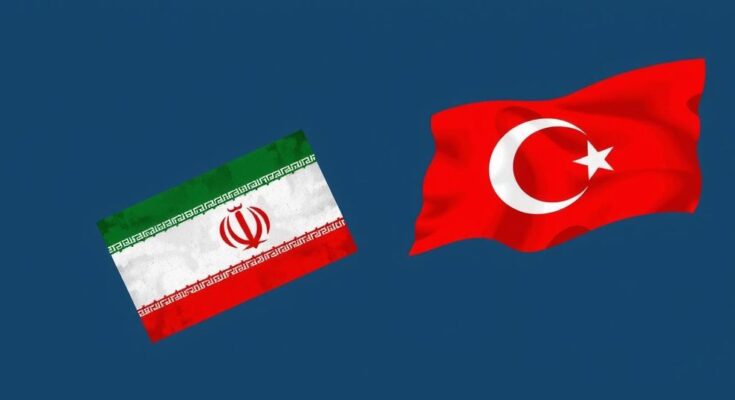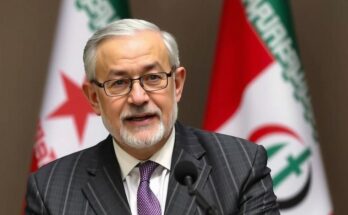The death of Hamas leader Yahya Sinwar marks a pivotal moment for Iran and Turkey, prompting high-level diplomatic engagements between the two nations. Iran’s Foreign Minister has undertaken a regional tour to enhance Iran’s influence and bolster support for Hamas and Hezbollah against Israel. Both countries are navigating shared interests and complex geopolitical tensions, particularly concerning Azerbaijan and Armenia, amid escalating rhetoric against Israel by Turkish leaders.
Following the demise of Hamas leader Yahya Sinwar, influential diplomatic movements have taken place, particularly concerning Iran and Turkey. Iranian Foreign Minister Abbas Araghchi was already scheduled for a visit to Turkey as part of a broader regional tour meant to fortify Iran’s geopolitical influence. This tour included meetings in Lebanon, Syria, Saudi Arabia, Qatar, Iraq, Oman, Jordan, and Egypt, aiming to reinforce alliances and isolate Israel in the ongoing regional tensions. The death of Sinwar signals an opportunity for Iran and Turkey to intensively support not only Hamas but also Hezbollah in their confrontations against Israel. Both nations have consistently provided backing to Hamas, with Iran extending its influence to Hezbollah in Lebanon as well. Araghchi, during his recent attendance at a South Caucasus regional conference, articulated a shared concern over the escalating conflicts in Gaza and Lebanon, indicating a collaborative stance against perceived Israeli aggression. In addressing the situation, Araghchi stated, “he said his Istanbul visit coincided with his regional tour to the neighboring country to hold talks on the Israeli regime’s aggressions that have created a dangerous situation in the region.” Iran and Turkey’s rapprochement has grown stronger over the last decade, leading to a complex relationship rife with shared interests, despite occasional disagreements. Notably, both countries maintain close ties with Qatar, which serves as a base for Hamas operations. Moreover, discussions between Turkey and Iran have also expanded into the geopolitical dynamics involving Azerbaijan, Armenia, and Russia. Turkey has traditionally fostered a strong relationship with Azerbaijan, while Iran has nurtured ties with Armenia, creating a nuanced balance of power within the region. Russia, on the other hand, has adopted a multifaceted approach, maintaining connections with both Iran and Turkey while intervening minimally in the Azerbaijan-Armenia conflicts, particularly regarding the recent territorial acquisitions in Nagorno-Karabakh. Turkey’s position towards Israel has gradually become more confrontational, particularly under the leadership of President Recep Tayyip Erdogan, who has adopted a markedly critical rhetoric against the Israeli government over the past year.
The context surrounding the recent developments in Iran-Turkey relations lies in the geopolitical landscape of the Middle East, where alliances are frequently tested and reshaped by ongoing conflicts and historical animosities. The assassination of Hamas leader Yahya Sinwar has intensified Iran and Turkey’s cooperative strategies in their shared opposition to Israel. Iran’s longstanding support for groups opposing Israel, such as Hamas and Hezbollah, is juxtaposed against Turkey’s assertive foreign policy under Erdogan, especially regarding the Palestinian cause. The relationships within the Caucasus region, particularly between Azerbaijan and Armenia, introduce additional complexity to Iran-Turkey dynamics, affecting their regional strategies and approaches to external players like Russia.
In summary, the death of Yahya Sinwar has prompted Iran and Turkey to deepen their collaborative efforts in supporting Hamas and Hezbollah against Israel. Their relationship indicates a concerted aim to challenge Israeli influence while simultaneously navigating complex regional issues involving Armenia and Azerbaijan. Both countries, despite their internal differences, continue to face a common adversary in Israel, leading to a strengthened partnership that may significantly impact future regional politics.
Original Source: www.jpost.com




